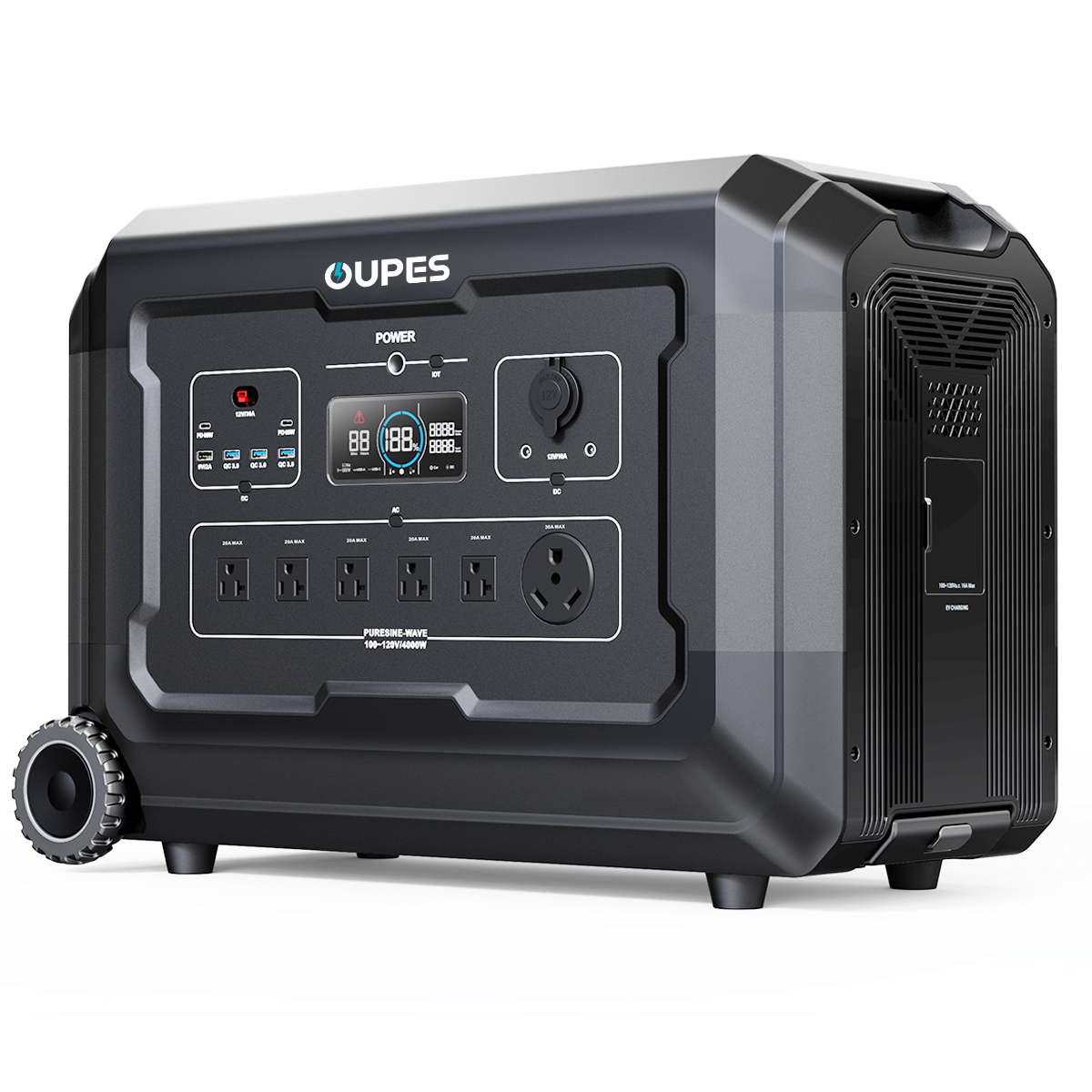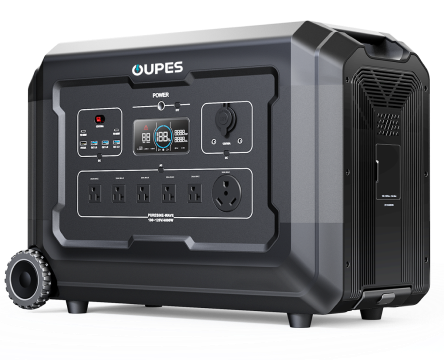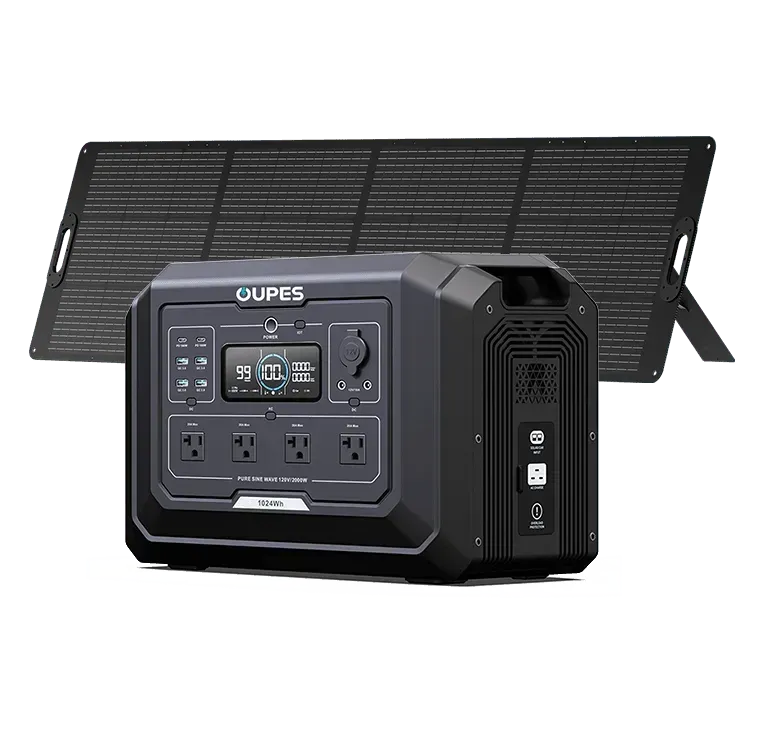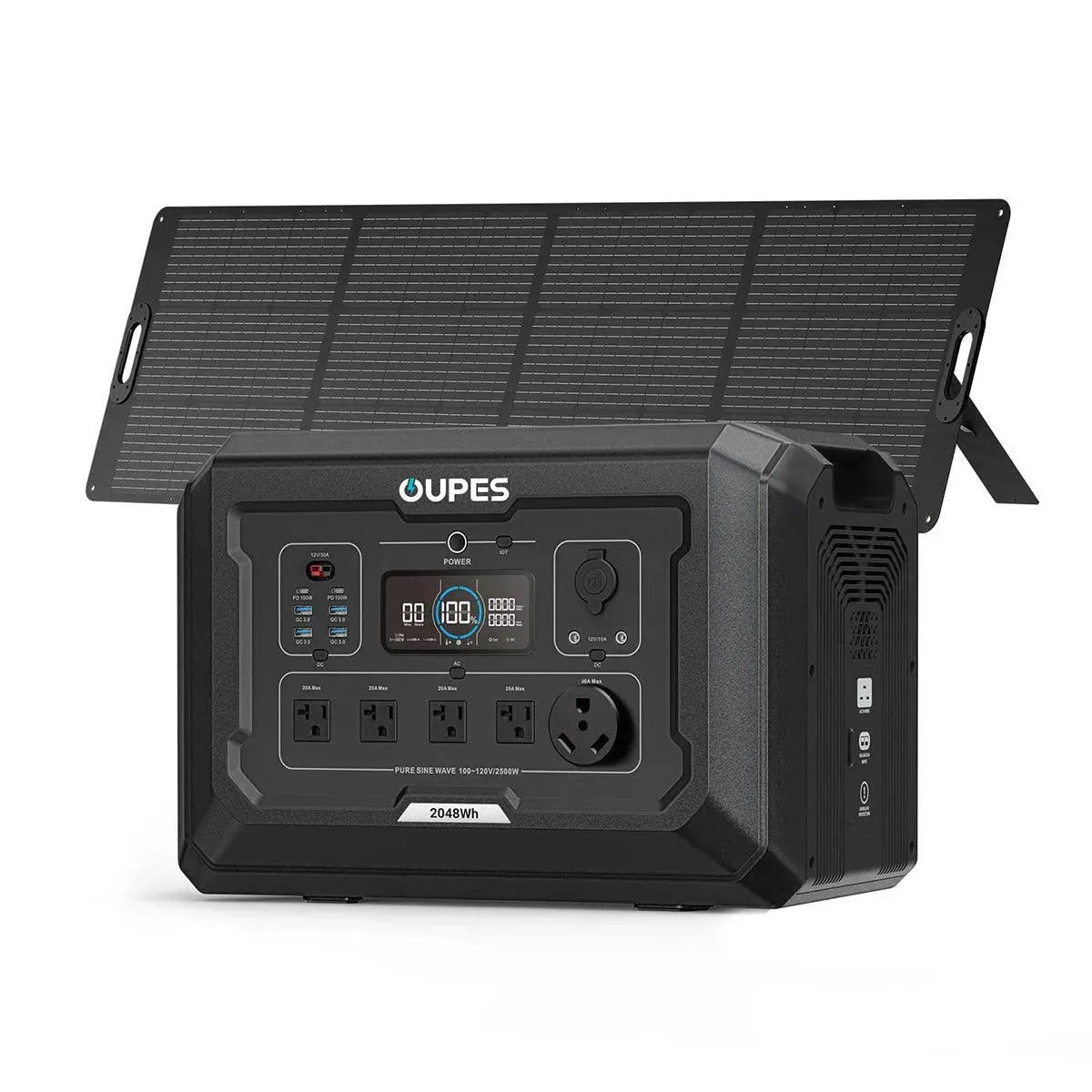
TL;DR / Key Takeaways
- Stockpile essentials: food, water, medication, lighting, and communication tools.
- Secure a reliable backup power source like a high-capacity portable power station.
- Plan for heating, cooling, and refrigeration needs during extended outages.
- Practice safe storage of fuels, batteries, and emergency gear.
- OUPES power stations provide scalable, eco-friendly backup for households, RVs, and off-grid living.
Introduction
Power outages can last hours, days, or even weeks depending on the cause. Natural disasters, grid failures, or severe weather events can leave households without electricity for extended periods. The question is: how do you prepare for a long-term power outage?
This guide covers essential supplies, emergency planning, and how to choose the right OUPES portable power station to keep your home safe, connected, and functional.
Step 1: Stock Up on Essential Supplies
During extended outages, access to stores and services may be limited. Prepare essentials in advance:
- Water: At least one gallon per person per day for drinking and sanitation.
- Food: Non-perishable items like canned goods, dried fruits, rice, and pasta.
- Medication: Maintain a backup supply of prescription and over-the-counter medicines.
- Lighting: Flashlights, lanterns, and spare batteries.
- Communication: Battery-powered or solar radios, fully charged power banks.
- First Aid: Comprehensive kit with bandages, antiseptics, and emergency tools.
Step 2: Secure Backup Power
Without electricity, critical appliances like refrigerators, medical devices, and heating systems stop working. Portable power stations provide a safe, reliable alternative to noisy gas generators.
OUPES power stations feature LiFePO4 batteries, ensuring long lifespan (3,500+ cycles), solar charging compatibility, and expandable capacity for whole-home solutions.
OUPES Portable Power Stations for Long-Term Outages
Below is a comparison of OUPES models that suit different outage scenarios, from light needs to complete home backup:
| Model | Capacity | AC Output | Solar Input | Expandability | Best Use Case |
|---|---|---|---|---|---|
| Exodus 1200 | 992Wh | 1200W | 240W Max | Not Expandable | Short outages, small appliances |
| Exodus 2400 | 2232Wh | 2400W (2600W Boost) | 800W Max | Not Expandable | Critical devices, refrigerators |
| Mega 3 | 3072Wh | 3600W | 2100W Max | Up to 15.36kWh | Family backup, multiple appliances |
| Mega 5 | 5040Wh | 4000W | 2100W Max | Up to 45.36kWh | Whole-home power, off-grid living |
Real-Life Scenarios
Weekend Blackout
With the OUPES Exodus 1200, you can keep phones, laptops, and lights powered for 1–2 days. Perfect for short but inconvenient outages.
Storm-Induced Power Loss
An Exodus 2400 can power a refrigerator, router, and medical devices for several hours to a full day, ensuring safety and comfort.
Family Home During Grid Failure
The OUPES Mega 3 provides expandable capacity and enough output to run essential household appliances, heating systems, and entertainment for days.
Extended Off-Grid Living
For weeks-long outages or remote living, the Mega 5 expandable system powers an entire home, especially when paired with solar panels.
Step 3: Safety and Maintenance During Outages
- Store food safely in coolers if refrigerators lose power.
- Use power stations indoors (no fumes) but keep ventilation clear.
- Recharge stations regularly, even when not in use.
- Keep solar panels accessible and clean for maximum efficiency.
Step 4: Create a Long-Term Preparedness Plan
Preparing isn’t just about supplies. Families should establish communication methods, assign emergency roles, and practice evacuation if necessary.
OUPES stations complement these plans by ensuring stable power for communication, health devices, and critical systems.
Frequently Asked Questions (FAQ)
1. How much power do I need for a long-term outage?
Calculate wattage of essential appliances (e.g., fridge ~100W, router ~10W). Multiply by hours of use to size your station.
2. Can OUPES stations run continuously for days?
Yes. With solar input and expandable models like the Mega 5, you can sustain power indefinitely off-grid.
3. Are portable power stations safer than generators?
Yes. OUPES stations are silent, emission-free, and safe for indoor use, unlike gas generators.
4. How long will OUPES stations last?
With LiFePO4 batteries rated for 3,500+ cycles, expect 8–10 years of reliable performance.




























